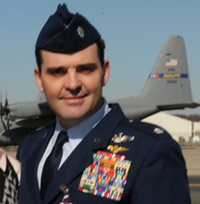I am a retired veteran who works in the Agile Scrum Software Development field. I have a passion to help veterans who are transitioning from the military into the civilian workforce. Few people are aware that an estimated 250,000 soldiers, airmen, and sailors leave the military every year and have to transition back to civilian life. For the next five years, that number could increase to 340,000 annually. This blog post is to raise awareness of how veterans' skills align with being Scrum Masters. In doing so, my hope is this may prompt you to at least take a second look in the resume stack when a veteran’s resume comes across your desk.
Military veterans bring with them sound technical skills gained from their service, but more importantly, veterans bring life skills that can be utilized in the role of a ScrumMaster. The comparison below is provided to make this point.
A Scrum Master is a:
- Facilitator/Communicator.
- Mentor/Team coach.
- Impediment remover/problem solver.
- Servant-leader.
- Scrum process custodian.
- Liaison for product owners and stakeholders.
A Veteran:
- Has loyalty to the team: Military personnel carry with them an intrinsic understanding of how loyalty adds to team proficiency and builds trust in a work environment. Military personnel often outperform other candidates as proven team players.
- Has a reliable work ethic: Knowing the importance of adhering to a process and a schedule and consistently performing well at work demonstrates professional maturity. Through their service, training, and lifestyle, former military personnel typically have the work ethic that sets a standard for teams.
- Motivated by productivity: In the workplace, self-discipline is at the heart of self-organizing teams. Military personnel have been trained to work toward efficiency, ask for guidance when needed, and exercise self-discipline in professional settings.
- Possesses comprehensive communication skills: Military personnel not only understand workplace diversity, but they also know that good communication needs to be flexible. Most have traveled extensively and understand the nuances of international cultures and communication styles. This awareness along with technical literacy can serve to streamline communication efforts across the organization and cultures.
- Is an adaptive process follower: Few things are ingrained more into a military member than to follow process. When the process does not fit, they adapt as needed and then return to the standard process.
Compare what a Scrum Master is to what a veteran is and it is apparent that key military-related attributes are in fact the description of a Scrum Master. This being the case, it is easy to see why military veterans thrive as ScrumMasters. My hope is that this may be taken into consideration when reviewing that stack of resumes on your desk.
Tom “Mad Dog” Friend is a retired Naval Aviator – Air Force Pilot and current Afterburner, Inc. Agile Consultant who specializes in optimizing Scrum and accelerating organizational agility with the simple tools found in the Flawless Execution℠ Pilot Debriefing Model. Some of the certifications he holds are: PMI-ACP, CSP, PSM, CSM, Airline Transport Pilot, and Helicopter Pilot.
Afterburner and Flawless Execution are registered with the U.S. Patent and Trademark Office and are owned by Afterburner, Inc.



